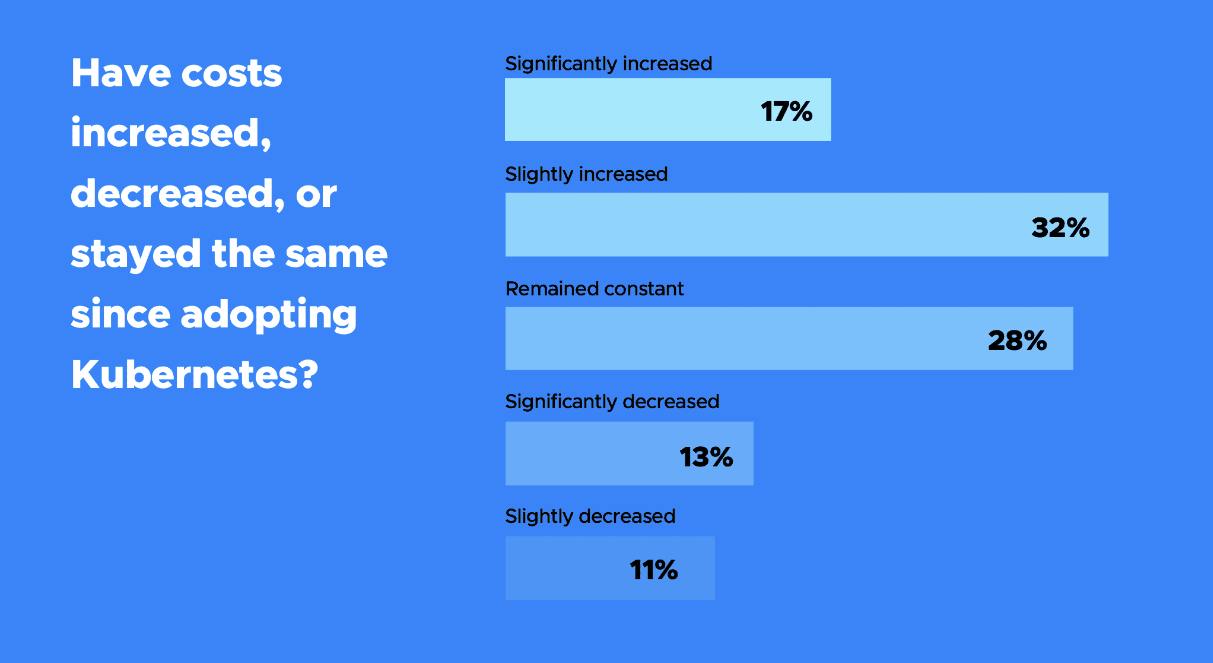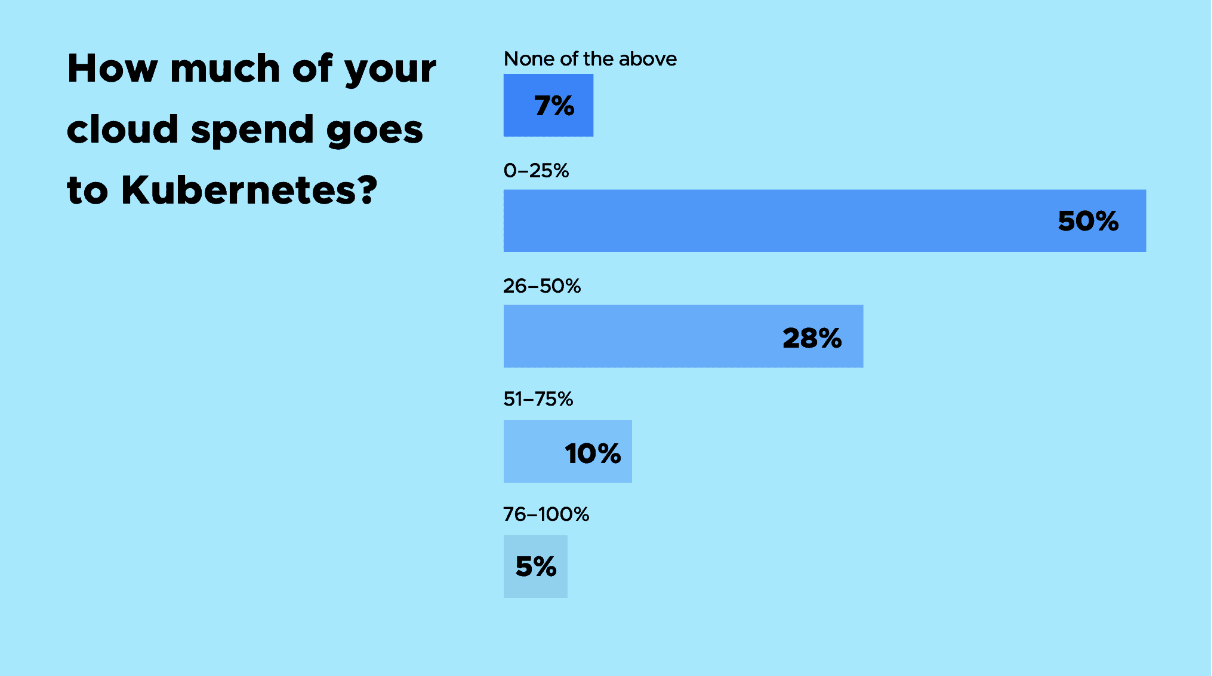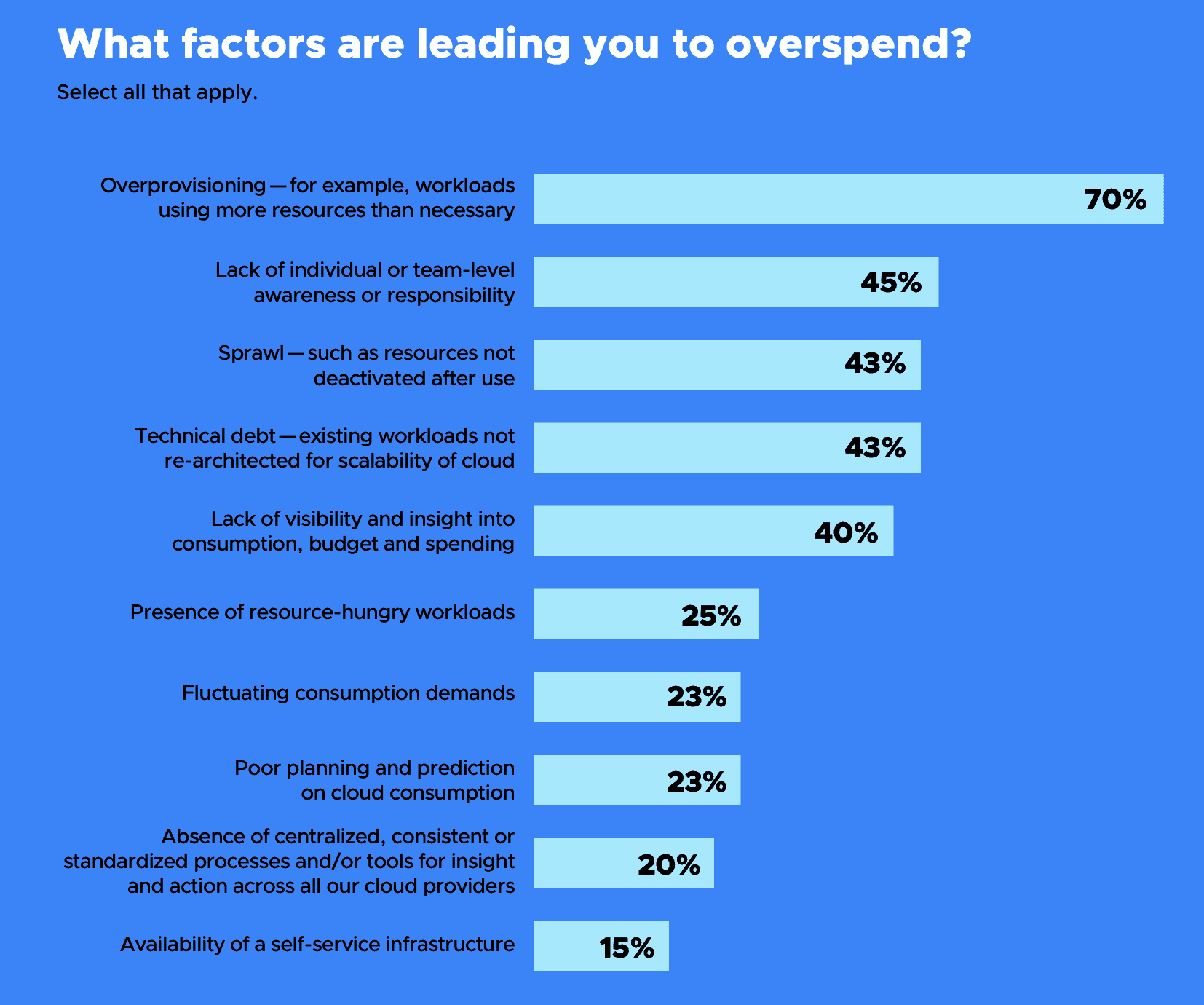A survey report issued by CNCF point out , The arrival of Kubernetes has led to a sharp increase in cloud spending; yes Nearly half (49%) of the respondents said that Kubernetes promoted the growth of cloud spending. Among them, 17% said that the cost increased significantly, and 32% said that the cost increased only slightly.
On the other hand, 13% of the respondents succeeded in significantly reducing cloud spending after implementing Kubernetes, and 11% succeeded in slightly reducing spending. 28% of the respondents said that there was no change after the adoption of Kubernetes.

About 28% of the respondents said that Kubernetes accounted for half of their budget, 10% said that this figure was as high as 75%, and a very few 5% said that Kubernetes accounted for all of their budget.

26% of people spend up to 50000 dollars on cloud computing every month; Another 22% said their expenditure was 20 times that of the former, reaching more than $1 million per month. In addition, 21% of people spend less than $10000 per month on cloud computing.
Among the respondents, the scale of Kubernetes infrastructure varies greatly. Nearly half of the respondents (49%) Up to 50 nodes . 15% has 51-100 nodes, 17% has 101-250 nodes, and 18% has more than 251 nodes.
Many human and technical factors are considered to be the reasons for the increase of expenditures and unnecessary and unexpected costs in the cloud environment. Over allocation is far ahead with a proportion of 70%, and the lack of sense of responsibility at the individual or team level ranks second, at 45%. After using resources, the failure to stop resources and the existence of technical debt (defined as the workload that has not been re architected to take advantage of the scalability of the cloud native environment) rank third, accounting for 43% respectively.

Only 19% of respondents said they could accurately monitor Kubernetes' costs. 40% of people only made an estimate, and 38% said they did not carry out any monitoring at all.
More details can be found at View full report 。







